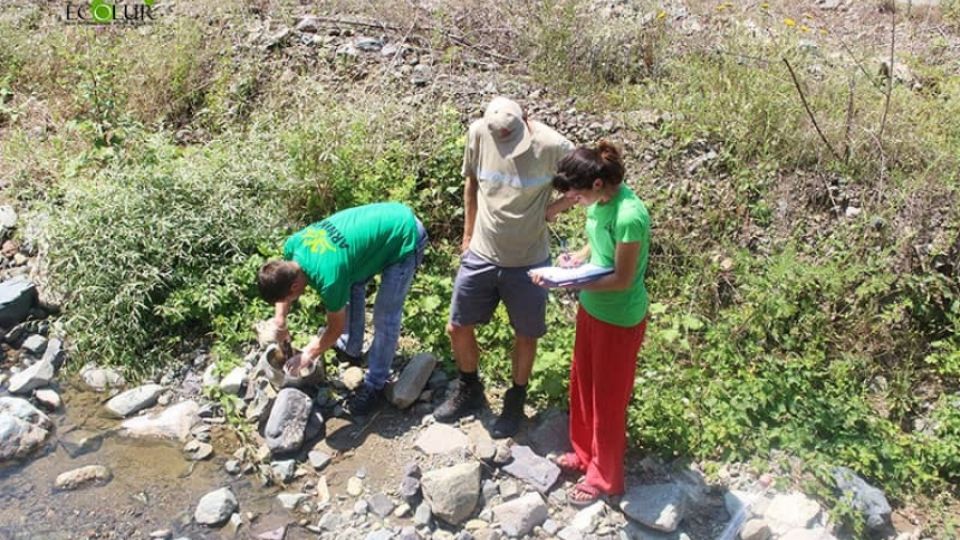Czech specialists are studying to what extent the mining communities of Alaverdi, Shnogh, and Akhtala are polluted with heavy metals, and what kind of impact it will have on human health. From 18-23 July 2018 the experts of the Czech 'Arnika' organization, specializing in chemical safety, and the University of Chemistry and Technology, Prague, took samples from community land areas, riverbeds, residents' hair, and eggs from households, informs Armenian portal EcoLur.
This examination was carried out within the framework of 'Involvement of Civil Society in Armenia in Decision-making on Mining' funded by the Ministry of Foreign Affairs of the Czech Republic. The project implementers are the 'Arnika' organization, the 'Armenian Women for Health and a Healthy Environment,' and 'EcoLur' Information NGOs. Czech experts Nikol Krejčová, Jitka Straková, and Marek Šír told journalists that the aim of this project is to protect the residents from the impact of environmental pollution. They also noted that the samples will undergo lab analysis at the University of Chemistry and Technology, Prague. The results of the analysis will be available in October 2018.
According to the 'Geo Alaverdi Environment and Urban Development' report, "25,000 tonnes of sulphur anhydride annually are emitted onto Alaverdi residents, and the land within a radius of 3 km from the Alaverdi copper smelting plant is very heavily polluted with heavy metals with the maximum permissible concentration being exceeded 20-40 times," said 'EcoLur' Information NGO expert, Victoria Burnazyan. She noted that the Lori region is the leader amongst the Armenian regions in terms of atmospheric emissions from static sources. "Around 51,000 tons of harmful substances are emitted in this region, and nothing is extracted," Victoria Burnazyan said. 'Armenian Women for Health and a Healthy Environment' NGO expert doctor, Qnarik Grigoryan, mentioned that emissions can cause different diseases in the human organism.
"Penetrating through the respiratory system, they cause burns of the mucosa, eyes, and skin. Sulphuric acid also possesses features of killing bacteria and if they enter the organism, it can affect the whole digestive tract," Qnarik Grigoryan said. Because of the emissions from the Alaverdi copper smelting plant, the waters of the Debed and Akhtala Rivers have become acidic. The use of such water for irrigation will lead to salination and acidification of the land areas. It should be mentioned that the Armenian Government intends to support 'ACP' to construct a new copper smelting plant and an ad hoc working group has been established in line with Armenian Deputy PM Tigran Avinyan's decision. "It's one of those unique cases when an independent international organization has arrived to carry out the examination. We are going to submit the results to the Armenian Government," Victoria Burnazyan said.
This article was published in English, Russian and Armenian on website of the local
informational NGO EcoLur and used by Arnika with author's authorization.







